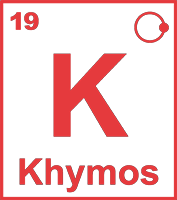The emphasis of the following books is mainly on the science of cooking. They are however written in an everyday language so they should be accesible even if you don’t know any science. The books are all more or less organized into sections according to different types of food and nutrients such as meat, fish, eggs, flour, fat/oil etc. If you don’t know where to start, take a look at the books marked in red – they are some of my favourites!
- Cesar Vega, Job Ubbink, and Erik van der Linden (ed.): The Kitchen as Laboratory: Reflections on the Science of Food and Cooking (2012, 336p) ISBN: 0231153449
- Nathan Myhrvold et al.: Modernist Cuisine (2011, 2438p) ISBN: 0982761007
- Simon Quellen Field: Culinary Reactions: The Everyday Chemistry of Cooking (2011, 288p) ISBN: 1569767068
- Harold McGee: Keys to Good Cooking: A Guide to Making the Best of Foods and Recipes (2010, 576p) ISBN: 1594202680
- Jeff Potter: Cooking for Geeks: Real Science, Great Hacks, and Good Food (2010, 432p) ISBN: 0596805888
- Heston Blumenthal: The Big Fat Duck Cookbook (2008, 532) ISBN: 1596915501
- Shirley O’Corriher: Bakewise: The Hows and Whys of Successful Baking with Over 250 Magnificent Recipes (2008, 544p) ISBN: 1416560785
- Herve This: Kitchen mysteries – Revealing the science of food (2007, 224p) ISBN: 023114170X
- Nicholas Clee: Don’t Sweat the Aubergine: What Works in the Kitchen and Why (2006, 336p) ISBN: 1904977782
- Kevin Ryan: Why it works: Insider secrets to great food (2006, 223p) ISBN: 047175305X
- Professor Spoon: Why Is My Custard Lumpy? (2006, 64p) ISBN: 1904573347
- T. Lister and H. Blumenthal: Kitchen Chemistry (2005, 125 p + CD) ISBN: 0854043896
- Herve This: Molecular gastronomy: Exploring the science of flavor (2005, 320 p) ISBN: 023113312X
- Joe Schwarcz: Let Them Eat Flax : 70 All-New Commentaries on the Science of Everyday Food & Life (2005, 240 p) ISBN: 1550226983
- Robert L. Wolke: What Einstein Told His Cook 2: The sequel (2005, 464 p) ISBN: 0393058697.
- Harold McGee: On food and cooking – The science and lore of the kitchen (2004, 670 p) ISBN:0684800012
- Alton Brown: I’m just here for more food: Food x Mixing + Heat = Baking (2004, 336 p) ISBN: 1584793414
- Paula I. Figoni: How baking works: Exploring the fundamentals of baking science (2003, 368 p) ISBN: 0471268569
- Howard Hillman: The new kitchen science (2003, 336p) ISBN: 061824963X
- Russ Parsons: How to read a french fry and other stories of intriguing kitchen science (2003, 352 p) ISBN: 0618379436
- Alton Brown: I’m just here for the food: Food + Heat = Cooking (2002, 288 p) ISBN: 1584790830
- Robert L. Wolke: What Einstein Told His Cook: Kitchen Science Explained (2002, 350 p) ISBN: 0393011836
- Peter Barham: The science of cooking (2001, 240 p) ISBN: 3540674667
- Sidney Perkowitz: Universal foam – from cappuccino to the cosmos (2000, 194 p) ISBN: 0802713572
- Anne Gardiner and Sue Wilson: The Inquisitive Cook (1998, 150 p) ISBN: 0805045414
- Shirley O. Corriher: CookWise (1997, 520 p) ISBN: 0688102298
- A. Coenders: The Chemistry of Cooking: An Account of What Happens to Food Before, During and After Cooking (1992, 276p) ISBN: 1850702268
- Tina Seelig: The Epicurean Laboratory: Exploring the science of cooking (1990, 163 p) ISBN: 071672099X.
- Colin Dence: Season to Taste (1985). ISBN: 9996138267
- Arthur E. Grosser: The cookbook decoder (1981, 201 p) ISBN: 0825304393
The last two books are a little different form the rest. They focus on food intolerance and allegies from a scientific viewpoint, but as the books above they are written in an everyday language. I’d say that if you don’t know the difference between a food intolerance and a food allergy, you should really look into the first book, “Was it something you ate”.
- John Emsley og Peter Fell: Was it something you ate? – Food intolerance, what causes it and how to avoid it (1999, 184 p) ISBN: 0198509669
- Joe Schwarcz (ed.): Foods That Harm, Foods That Heal (2004, 416 p) ISBN: 0762105054
